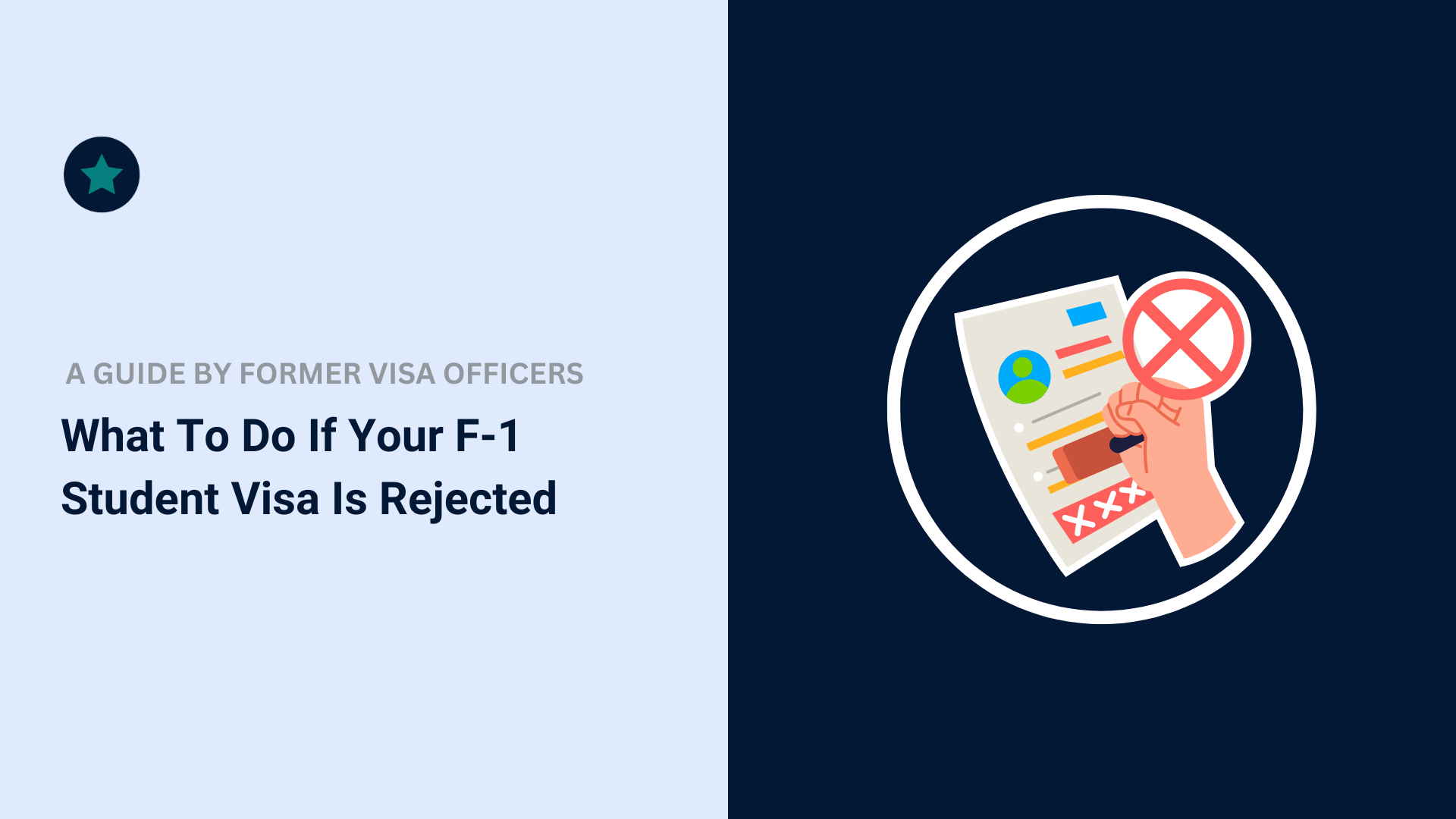RELATED RESOURCE
To learn more about why international students want the U.S. F1 visa, check out this related resource:
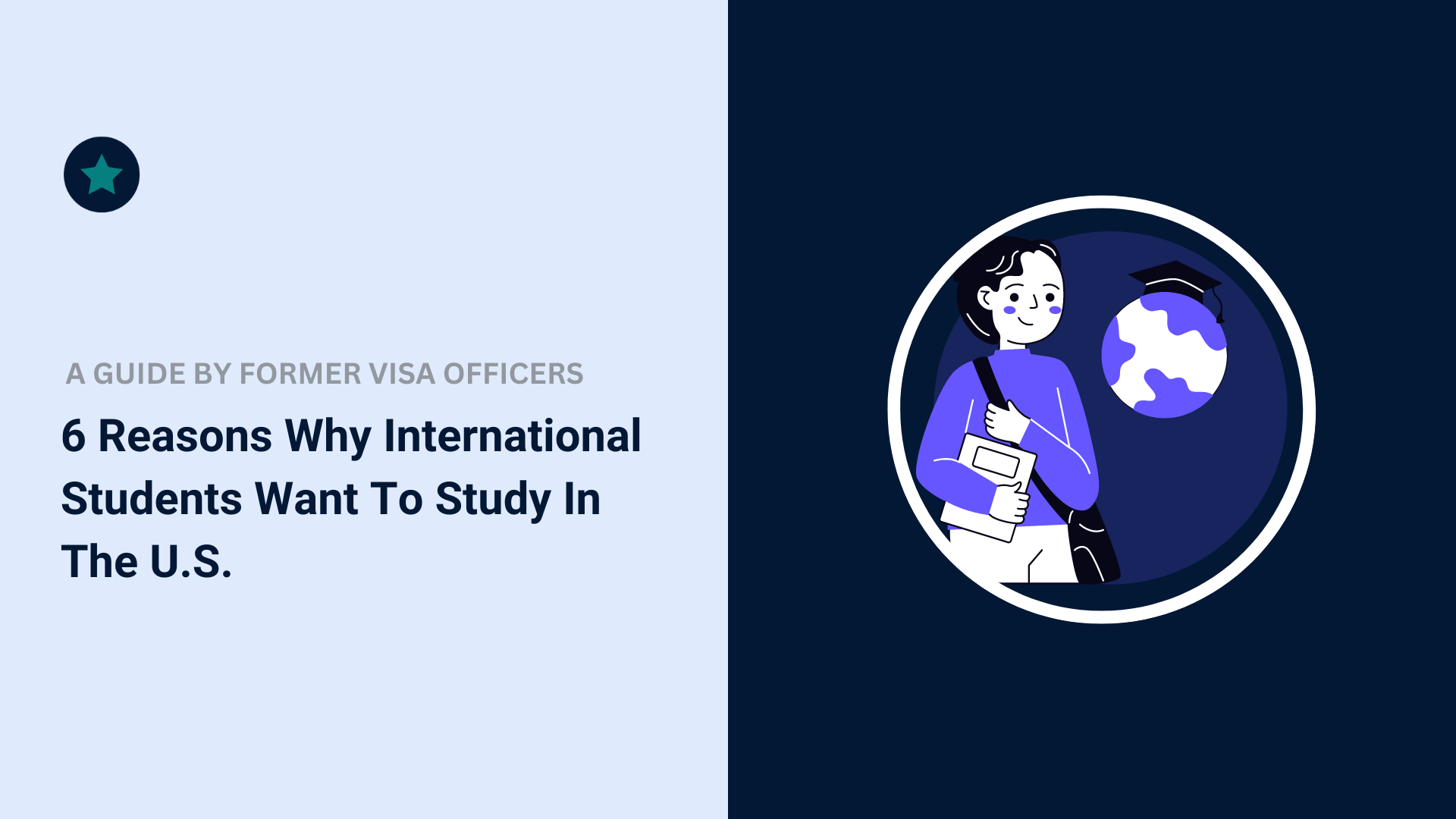
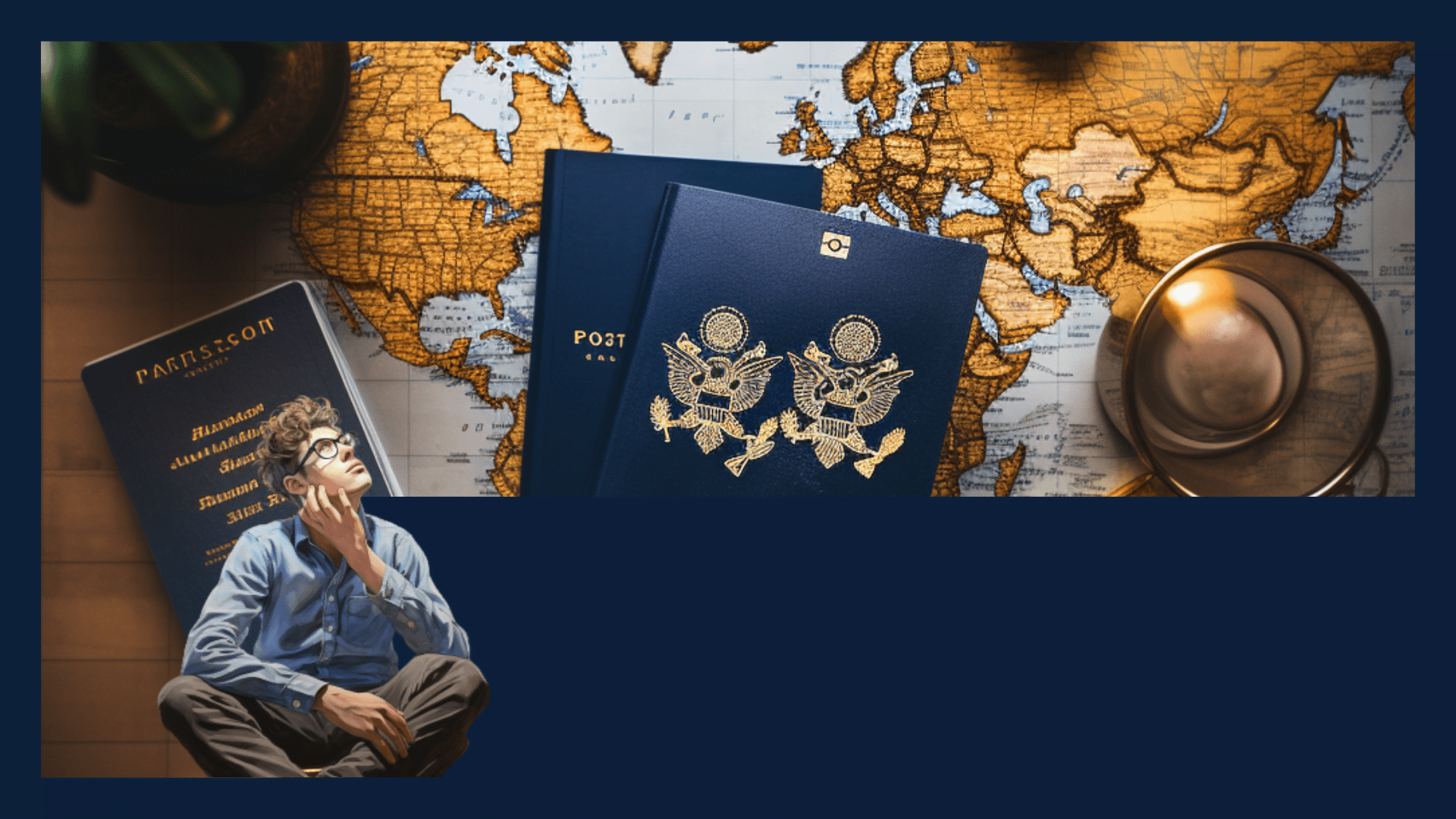
If you are still exploring your study abroad options, you might be wondering why you should choose the United States as your destination. The U.S. is one of the most popular and diverse countries in the world, and it offers many benefits and opportunities for international students.
In this guide, we will explain why studying in the U.S. will be a great choice for you, and how you can make the most of your academic and cultural experience there. Here are six reasons why you should study in the U.S.:

If you are intrigued after reading about the study options in the United States, but unsure if you should leave your home country to pursue them, you might be facing a dilemma. Studying in the U.S. on a student visa and studying in your home country both have their pros and cons, and you need to weigh them carefully before making a decision.
In this guide, we will compare the advantages and disadvantages of studying in the U.S. versus studying in your home country, and help you decide what is best for you. Here are some of the factors to consider:
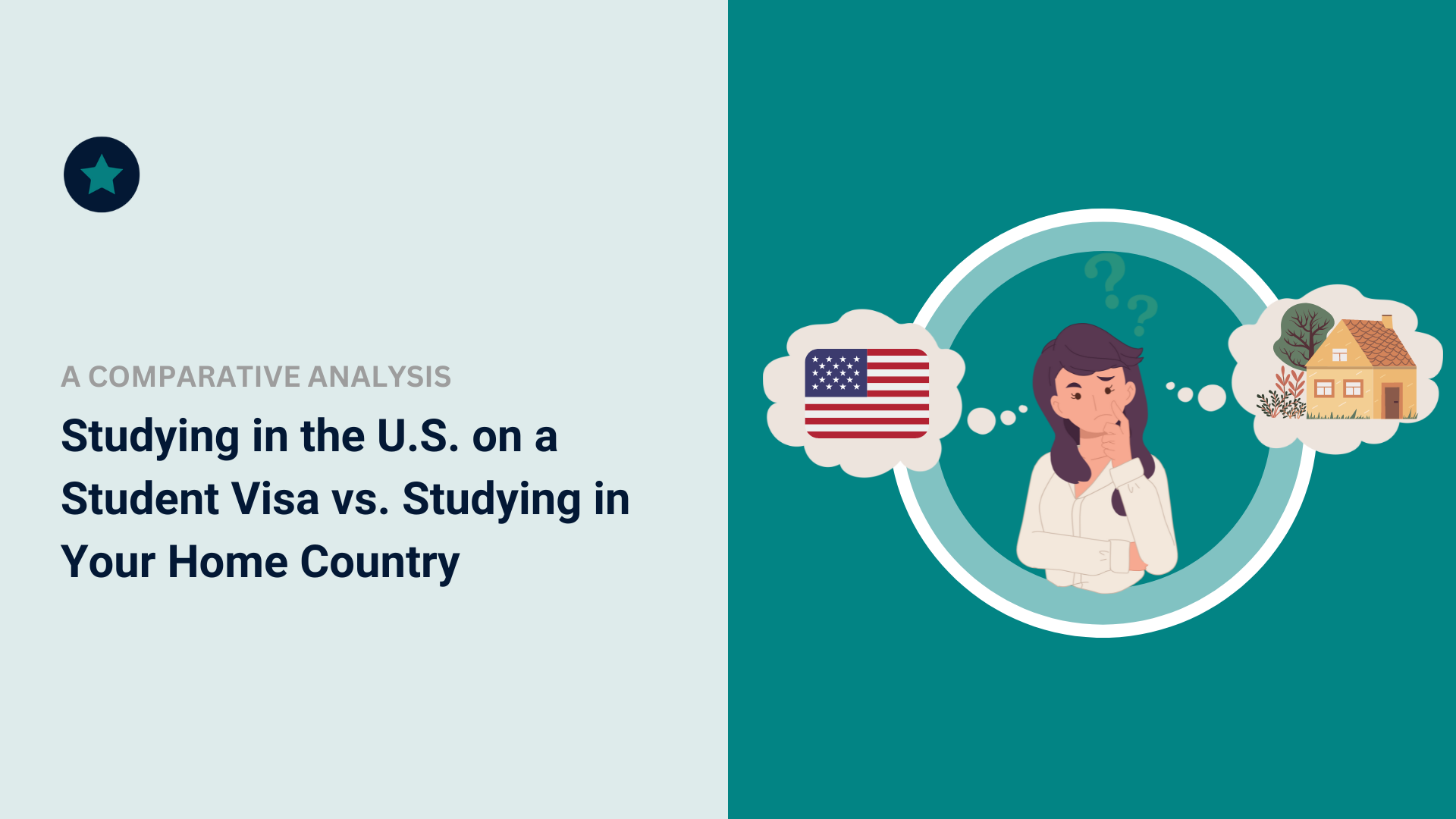
Sold on studying in the U.S.? Your next step is to consider the different types of international programs offered by U.S. universities. International programs are academic or cultural programs that allow you to study, work, or travel abroad as part of your degree.
They can help you gain cross-cultural skills, academic knowledge, and professional opportunities that can enhance your education and career. In this guide, we will explain what international programs are, how they work, and why you should consider them. Here are some of the types of international programs for students in U.S. universities:
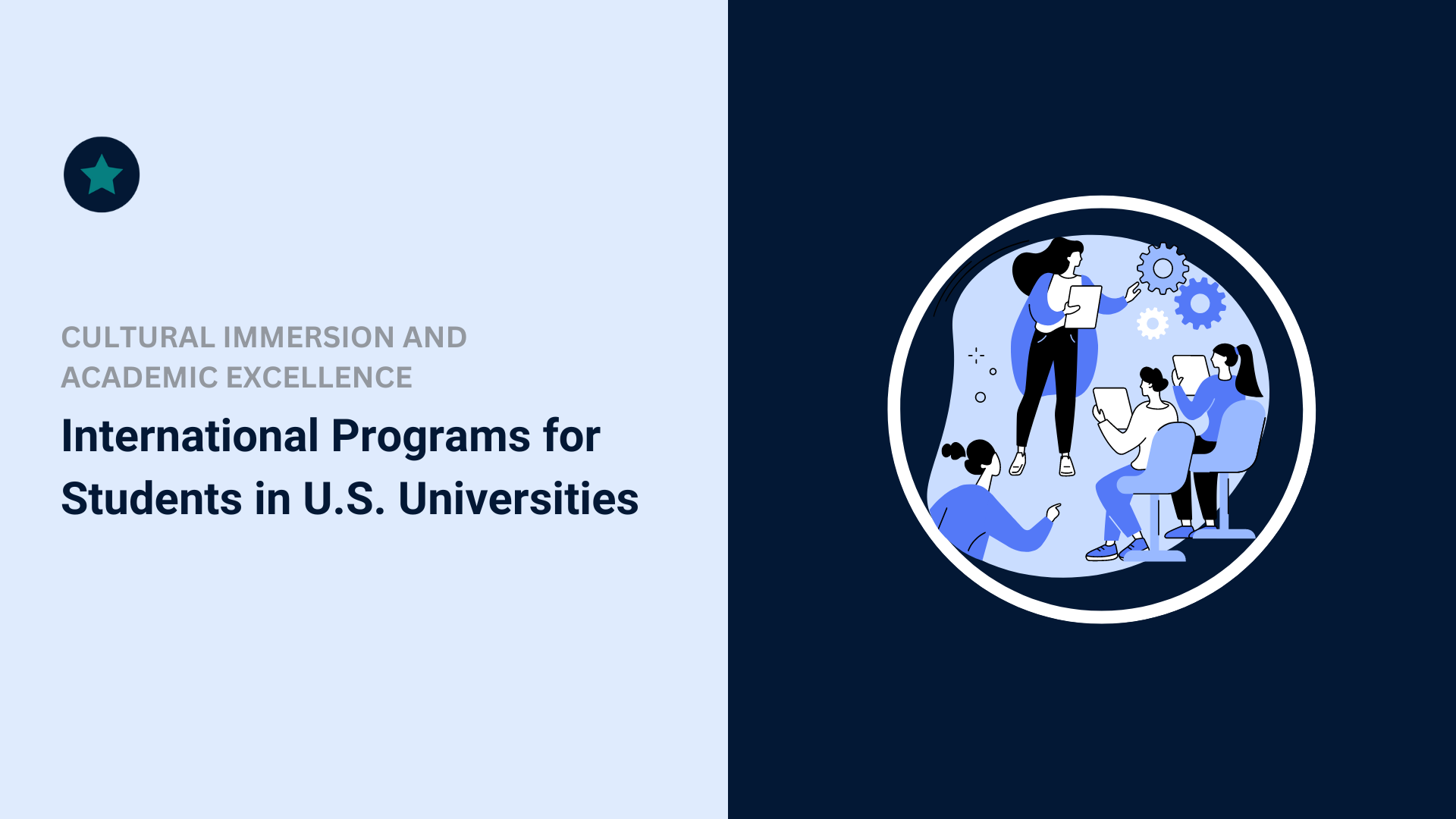
If you have decided to study in the United States, you will need to apply for a student visa that suits your situation and goals. There are different types of student visas, such as F1, J1, or M1, and each one has its own requirements, benefits, and limitations.
In this guide, we will explain the differences, requirements, and benefits of the three main types of U.S. student visas, and how to select the best one for your academic goals and plans. Here are the main features of each visa type:
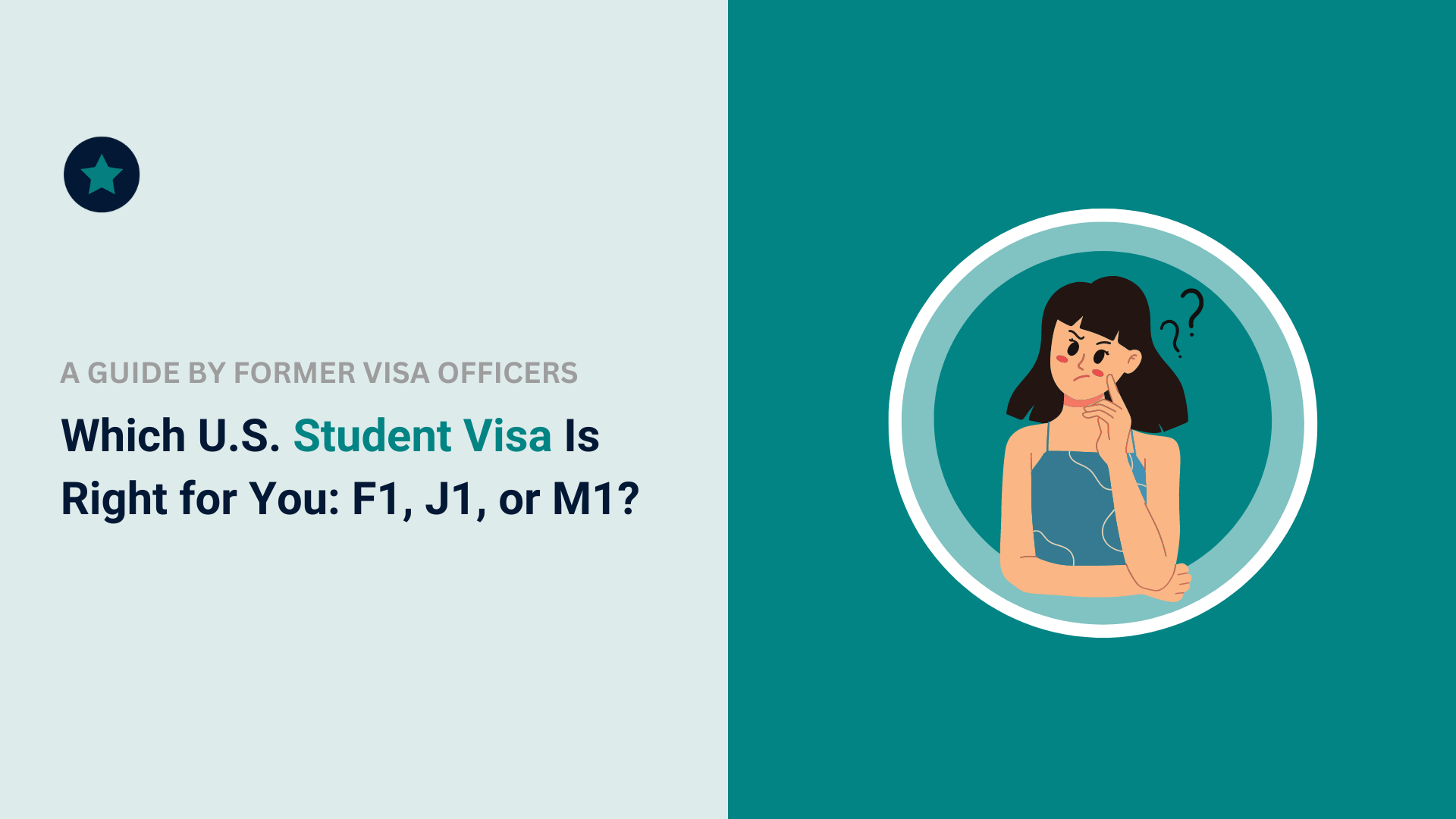
If you are applying for a U.S. student visa, you will need to attend a visa interview at the U.S. embassy or consulate in your home country. The visa interview is a crucial part of your visa application process, and it can determine whether you get your visa approved or denied.
In this guide, we will explain what the U.S. visa interview for students is, why it is important, and what questions you are likely to face during the interview. Here are some of the commonly asked questions about the U.S. visa interview for students:
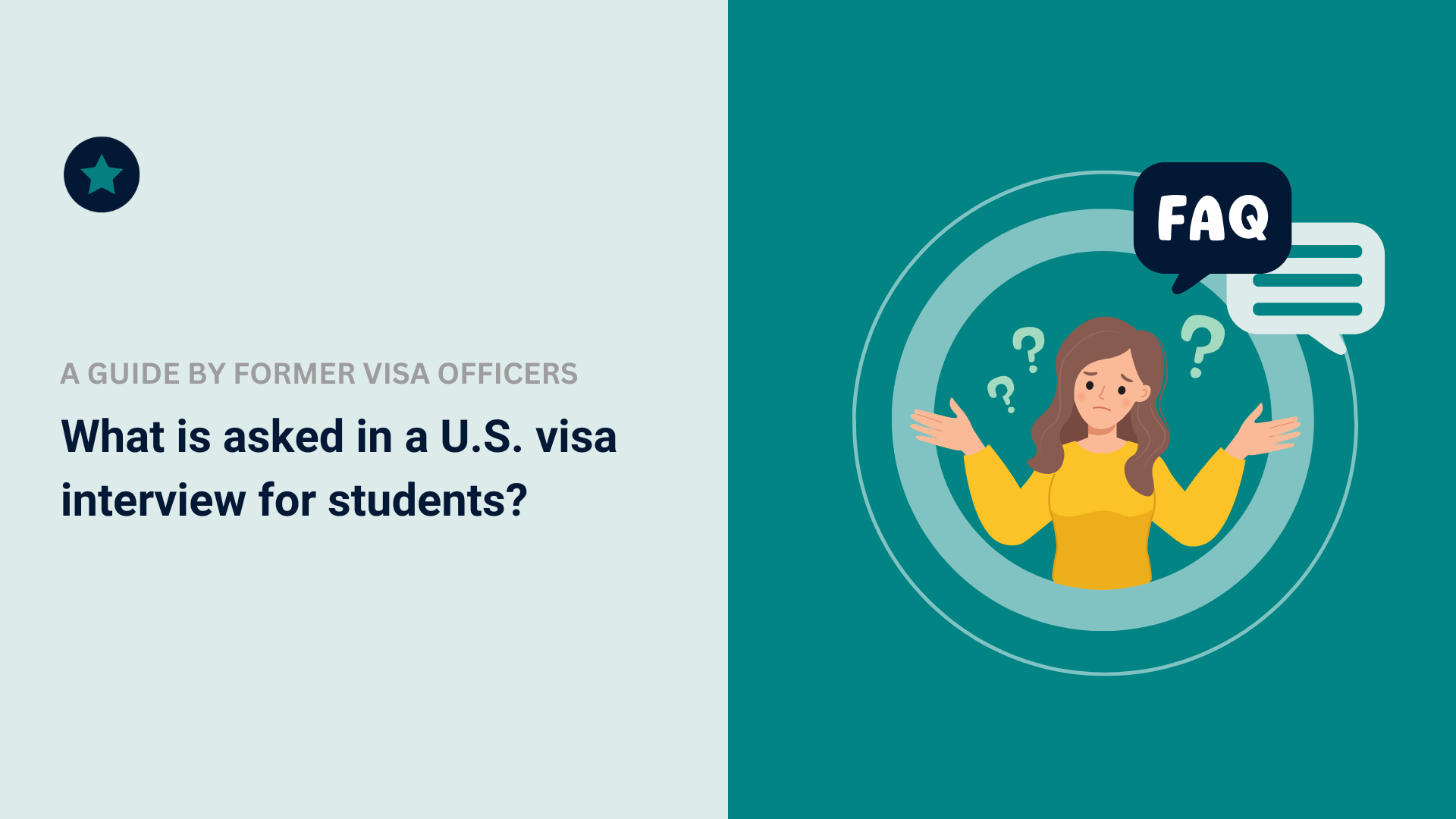
If you are applying for an F-1 visa, you will need to carry some documents for your visa interview at the U.S. embassy or consulate. These documents are essential to prove your identity, eligibility, and credibility as an international student, and to support your visa application.
In this guide, we will explain what documents you must carry for your F-1 visa interview, and what documents you can carry as backup or evidence of your academic and financial status. Here are the categories of documents you need to prepare:
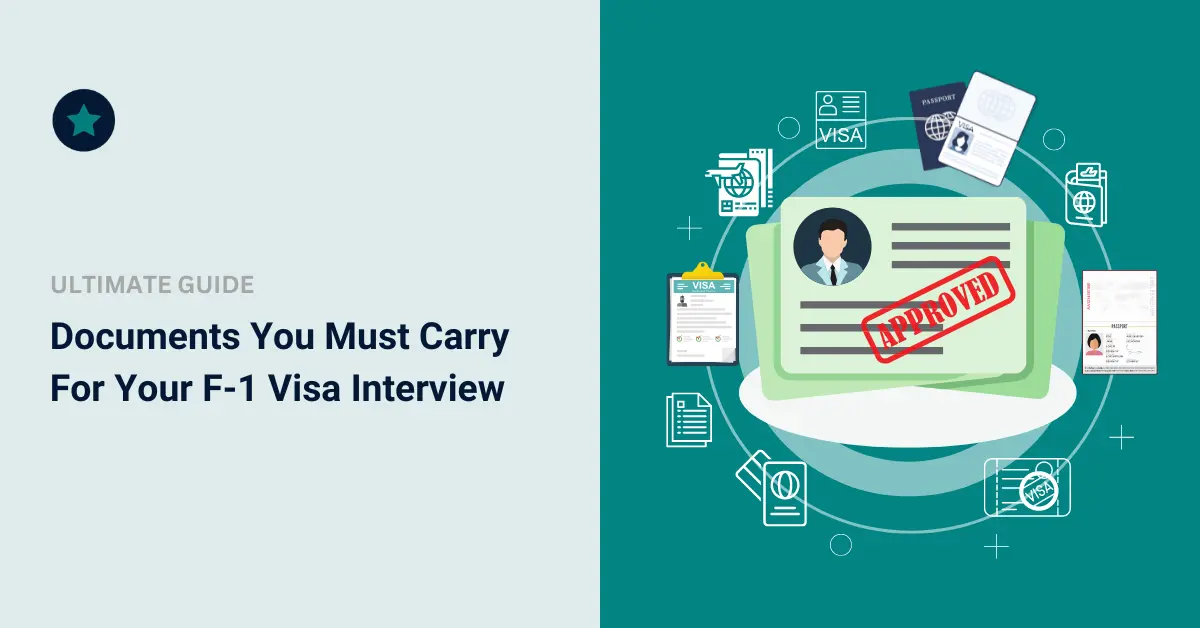
After applying for a U.S. student visa, you might be feeling nervous or overwhelmed by the process. The U.S. student visa process can be complex and challenging, but it can also be easy and stress-free if you follow some best practices.
In this guide, we will share with you 10 best practices to follow to make the U.S. student visa process a positive and rewarding experience, and to ensure your success. Here are the 10 best practices to follow:
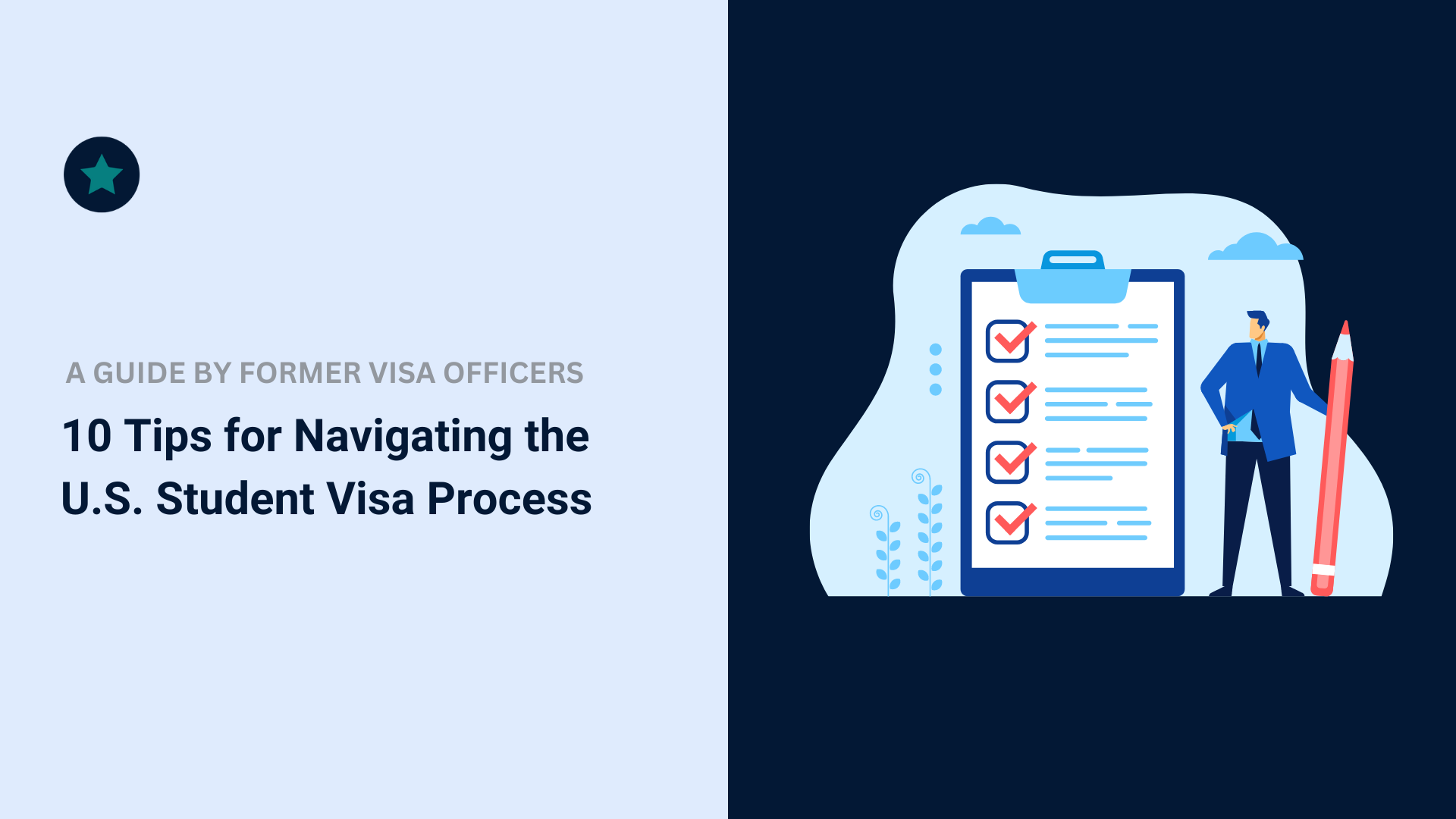
When applying for a U.S. student visa, you might be worried about the possibility of visa denial. Visa denial can be a frustrating and disappointing outcome, but it is not the end of your dream of studying in the U.S.
In this guide, we will explain why U.S. student visas get denied, and what you can do to prevent or overcome visa denial. Here are some of the common reasons and solutions for visa denial:
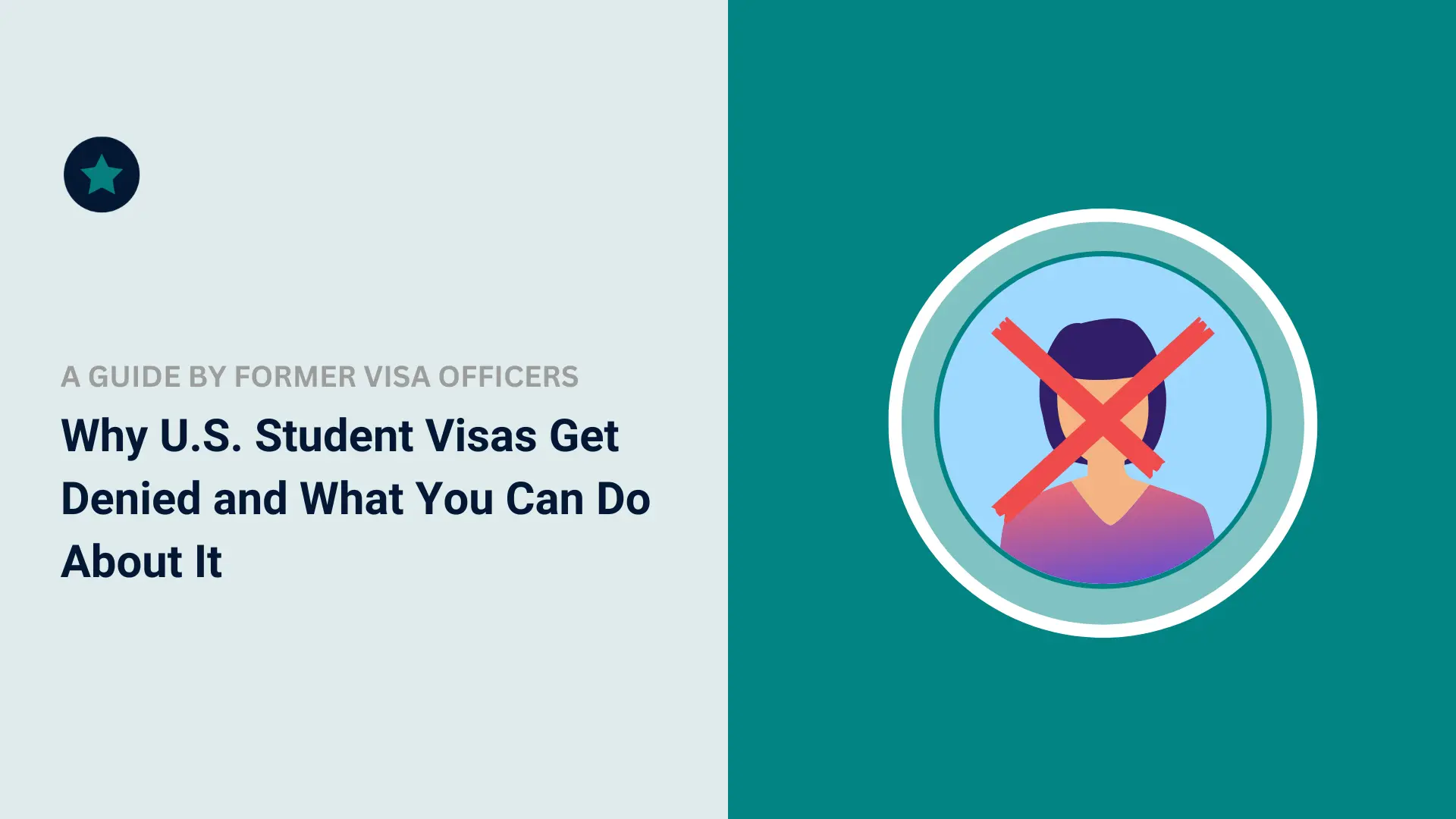
If you applied for an F-1 student visa, but your visa application was rejected, you might be feeling devastated and hopeless. F-1 student visa rejection can be a frustrating and disappointing outcome, but it is not the end of your dream of studying in the U.S.
In this guide, we will explain why your F-1 student visa was rejected, and what you can do to improve your visa application or consider alternative pathways. Here are some of the steps you can take after F-1 student visa rejection:
